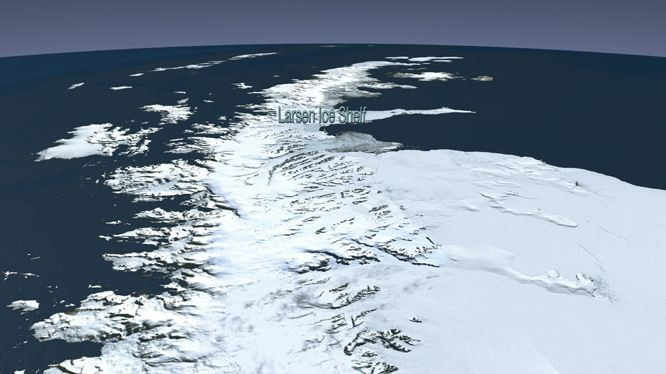West Antarctic Ice Sheet 'to Collapse in 200 Years'

The collapse of the West Antarctic ice sheet is now inevitable because we have "passed the point of no return", scientists have warned.
Researchers at Nasa and the University of California, Irvine, said that the ice sheet will have melted and flowed into the ocean within the next few centuries.
The study, which is due to appear in the journal Geophysical Research Letters, shows that a rapidly melting section of the sheet is in a state of irreversible decline and that there is nothing to be done to stop it.
Looking at 40 years' worth of data, the researchers said the ice sheet will contribute significantly to sea level rise, increasing it by as much as four feet, prompting calls for an upward revision for current sea level rise predictions.
Eric Rignot, lead author of the study, said: "This sector will be a major contributor to sea level rise in the decades and centuries to come. A conservative estimate is it could take several centuries for all of the ice to flow into the sea."
The scientists looked at glaciers to determine their flow speeds over the last four decades. Findings showed the glaciers have thinned so much they are now floating above areas where they used to sit solidly on land – showing their grounding lines (where the glacier first loses contact with land) is retreating inland.
Rignot said: "The grounding line is buried under a thousand or more meters of ice, so it is incredibly challenging for a human observer on the ice sheet surface to figure out exactly where the transition is. This analysis is best done using satellite techniques."

The authors said that slowing or stopping glaciers requires pinning pints, such as bumps or hills underneath the ice. However, Nasa maps showed there are no pinning points present in the lines of five of the six glaciers on the sheet, meaning there is nothing there to slow them.
First author of the study Ian Joughin, a glaciologist at University of Washington, said: "There's been a lot of speculation about the stability of marine ice sheets, and many scientists suspected that this kind of behaviour is under way. This study provides a more quantitative idea of the rates at which the [ice sheet] collapse could take place."
The team said the fastest scenario for the collapse was 200 years, while the longest estimate was 1,000 years. Joughin said he the most likely scenario for melt rate will be between 200 and 500 years.
"All of our simulations show it will retreat at less than a millimetre of sea level rise per year for a couple of hundred years, and then, boom, it just starts to really go," Joughin said.
Rignot said: "The collapse of this sector of West Antarctica appears to be unstoppable. The fact that the retreat is happening simultaneously over a large sector suggests it was triggered by a common cause, such as an increase in the amount of ocean heat beneath the floating sections of the glaciers. At this point, the end of this sector appears to be inevitable."
Speaking to Nature magazine, he added: "Ice is going to retreat from this sector for decades and centuries to come, and we can't stop it."
© Copyright IBTimes 2025. All rights reserved.






















